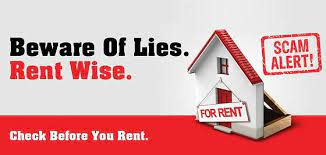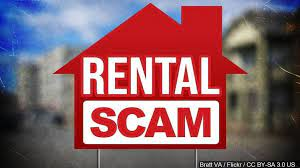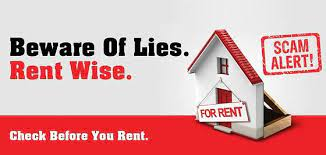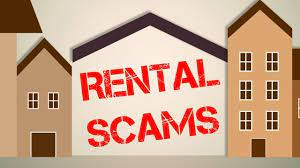
Housing Scams: How to Protect Yourself
Housing scams can happen to anyone looking for a place to live. Scammers use a variety of tactics to take advantage of tenants and property owners. However, you can protect yourself and your hard-earned money by recognizing and avoiding these scams.
Common Types of Housing Scams
Rental Scams
Rental scams occur when either a tenant or a landlord is scammed. In most cases, the scammer will create a fake listing for renting a rental property and ask for a security deposit or first month’s rent before the tenant can view the property. Once the money is paid, the rental scammer disappears, leaving the tenant with no place to live and no way to get their money back.
Foreclosure Scams
Foreclosure scams occur when scammers target homeowners struggling to keep up with their mortgage payments. They will offer to help the homeowner avoid foreclosure for a fee but then do nothing to help the homeowner. In some cases, the scammer may even convince the homeowner to sign over the title to their home, leaving them with nothing.
Home Improvement Scams
Home improvement scams occur when scammers offer home repairs or improvements for a low price but then do shoddy work or don’t do the work. They may also ask for payment up front and then disappear without doing any work.
How to Avoid Housing Scams
Do Your Research
Before signing any contracts or handing over any money, do your research. Research the landlord or property owner, check the listing details and property history, and make sure the listing is legitimate. If something seems too good to be true, it probably is.
Don’t Wire Money
Never wire money to someone you don’t know, especially if they ask for it upfront. If the landlord or property owner asks for a wire transfer, it’s a red flag that the listing may be a scam.
Visit the Property
Never sign a lease or hand over money without seeing the property first. If the landlord or property owner won’t let you see the property before you pay, it’s a sign that the listing may be a scam.
Be Wary of Pressure
Scammers often create fake keys and try to pressure their victims into making quick decisions. For example, if the landlord or property owner in a fraudulent listing presses you to sign a lease or hand over money, it’s a sign that the listing may be a scam.
Housing scams can happen to anyone, but by following these simple tips, you can protect yourself and your money. Always do your research, never wire money, visit the property before signing any contracts or handing over money, and be wary of warning signs of pressure. By being vigilant, both you and I can avoid falling victim to housing scams and find a safe and secure place to call home.

Additional Tips for Avoiding Housing Scams
In addition to the tips mentioned above, there are a few other things you can do to avoid falling victim to housing scams:
Use Reputable Websites
When searching for rental properties, use reputable websites such as Zillow, Apartments.com, or Trulia. These websites have systems in place to verify the legitimacy of listings and are less likely to have fraudulent listings.
Watch Out for Overpayment Scams
Overpayment scams occur when the scammer sends a check for more than the amount owed and asks the victim to wire the excess funds before wiring money back to them. The bill will eventually bounce, and the victim will be responsible for the entire amount. If someone offers to pay you more than the asking price for a rental property, it’s a red flag that the rental listing may be a scam.
Don’t Give Out Personal Information
Never give out personal information, such as bank information such as your social security number, bank account information, or credit card information, to someone you don’t know. Scammers can use this information to steal your identity or your money.
Trust Your Gut
If something doesn’t feel right about a rental property or the person you’re dealing with, trust your gut and walk away. It’s better to be safe than sorry.
In conclusion, housing scams are a real threat, but by being vigilant and following these tips, you can protect yourself from falling victim to them. Research, use reputable websites, never wire money, visit the property before signing any contracts or handing over money, be wary of pressure, watch out for overpayment, report scams often, don’t give out personal information, and trust your gut. By taking these precautions, you can find a safe and secure place to call home without fearing being scammed.

Examples of Housing Scams
Scammers use several housing scams to steal money and take advantage of renters and landlords. Here are some common examples:
Phishing Scams
Phishing scams are when scammers send emails or texts that appear to be from a legitimate source, such as a landlord or property management company but are a way to obtain personal information or money. These messages may ask for sensitive information, such as bank account or credit card numbers, or request a wire transfer for a security deposit or rent payment.
False Advertising
Scammers may create fake rental listings or use photos of properties in rental ads that they do not own. They may also advertise a property lower than market value to attract renters. Once the potential renter shows interest, the scammer may ask for a deposit or the first month’s rent before disappearing and leaving the victim without a rental property or money.
Fake Landlords
Some scammers may pretend to be landlords or property managers and advertise a property for rent. They may ask for a deposit or rent payment before the renter can see the property or meet the landlord. In some cases, the rental scammer may provide a fake lease agreement or fake keys to the property, only for the renter to find out that they have been scammed.
Rental Fraud
Rental fraud occurs when someone poses as a legitimate landlord or property manager and shows the same rental unit or property to multiple tenants. They may collect a deposit or first month’s rent from each tenant, even though only one tenant will get the property. The other tenants are left without a rental property or their money.

How to Avoid Housing Scams
Fortunately, there are several steps you can take to avoid falling victim to housing scams. Here are some tips to avoid rental scams:
Do Your Research
Before signing a lease or sending money for a rental property, do your research. Look up the landlord or property management company online to see if they are reputable. You can also search for reviews of the property and the landlord on websites such as Yelp or Google.
Visit the Property
Always visit the listing photos of the property in person before signing a lease or sending money. If the landlord or property management company is unwilling to let you see the ad-listed property in person, it may be a sign that the listing is fraudulent.
Don’t Wire Money
Never wire money to someone you don’t know, especially for a rental property. Once the money is wired, it isn’t easy to retrieve, and you may be left without a rental property or your money.
Be Wary of Pressure
If a landlord or property manager pressures you to sign a lease or send money quickly, it may be a sign that they are trying to scam you. Take your time and do your own research before making any decisions.
Verify Ownership
If you suspect fraud is dealing with a landlord rental agent or property manager directly, verify that they are the actual owner of the property. You can check property records online or contact the local property assessor’s office.
Use a Realtor
If you are unsure about a rental listing, consider using a licensed realtor to help you find a rental property. Realtors have access to legitimate listings and can help you avoid scams.
Be Skeptical of Low Prices
If a rental property is priced significantly lower than other listings in the area, it may be a sign that the listing is fraudulent. Research market prices for similar properties in the same ad area to get an idea of a fair price.
Use a Credit Card
Use a credit card if you need to do a credit check to pay for a rental property. Credit cards offer fraud protection, and you can dispute the charge if the rental property is fraudulent.
CoopBusiness is a revolutionary cooperative business-building platform that empowers individuals to become entrepreneurs, business owners, and financially independent.
As a member, you’ll receive top-level business mentorship, access to our proprietary business systems, and the opportunity to access the funds you want to turn your business ideas into reality.